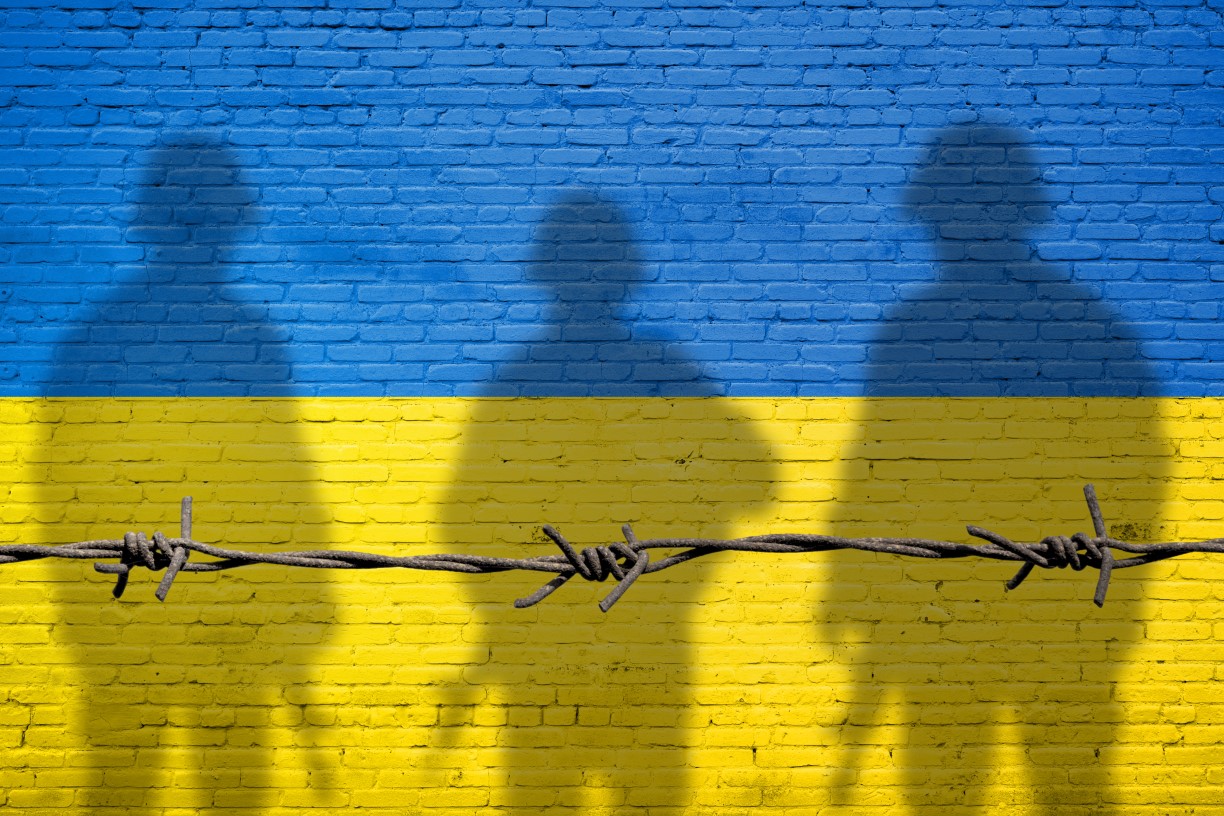
What’s Happening in Ukraine?
Nearly 200 members of the Bentley community gathered virtually this week for “War in Ukraine: Causes & Consequences,” a panel discussion with faculty experts offering information and insights in response to Russia’s Feb. 24 invasion of Ukraine.
Sponsored by the Valente Center for Arts and Sciences, the event was organized by Cyrus Veeser, a professor of History who specializes in U.S. foreign policy. “Waking up last Thursday to news of the invasion, I realized two things. One, that in a single action, Russia had completely upended the international order. And two, that I really didn’t understand why it was happening and what the end results might be.”
Reasoning that others might be feeling the same, Veeser turned to his colleagues for answers. He enlisted Leonid Trofimov, senior lecturer in History; Joao Resende-Santos, associate professor of Global Studies; and Dave Gulley, professor and department chair of Economics, to participate in a panel discussion moderated by Global Studies Professor Bonnie Field.
Over the course of the nearly 90-minute event, topics ranged from the history and future of Ukraine-Russia relations and Vladimir Putin’s personality to the international response to the invasion and longer-term impact of economic sanctions.
Did you miss the ‘War in Ukraine’ panel discussion?
Characterizing Putin as a ruthless and cynical “kleptocrat-in-chief,” Trofimov, a native of Russia, said the conflict reflects Putin’s personal desire to restore Russia’s imperial glory. Notably, he said, the war is being waged without the support of the Russian people. “For the first time in Russian history,” demonstrators have taken to the streets en masse in protest, at considerable personal risk, Trofimov said.
Thousands have been arrested after clashes with police in Moscow, St. Petersburg and other major cities, including friends and family of Fedor Shubalin MSF ’22, a Russian native with relatives both there and in Ukraine. “I have friends who are in jail now for protesting,” he shared with participants. Noting that Russia categorizes domestic protests as “war crimes,” he now fears for their health and safety.
“These are dangerous and transformative times,” said Resende-Santos, warning that “there is no scenario where Russia comes out of this stronger.” In his view, Putin made a “major miscalculation” by thinking he “could subdue Ukraine within 24 hours and surprise the E.U. and the U.S. with a ‘fait accompli.’” Instead, Russian forces have encountered strong resistance from the Ukrainian military and widespread censure from the international community.
Much of that censure is in the form of economic sanctions, which Gulley said will “significantly damage” the Russian economy. Russia is highly dependent on energy exports, he explained, and the European Union, which imports 40% of its natural gas from Russia, is already looking elsewhere to fulfill its energy needs. Coupled with high interest rates, the closure of the Russian stock market, and exclusion from SWIFT — the messaging system that facilitates global financial transactions — “things will get worse, and Russia will get weaker and poorer.”
As events continue to unfold in Ukraine, Veeser noted the potential for follow-up discussions. “We’re lucky to have faculty experts who are able to clarify what’s going on in a crisis like this one,” he said. “These are tough times and anything we as a community can do to help each other through them is worth doing.”

